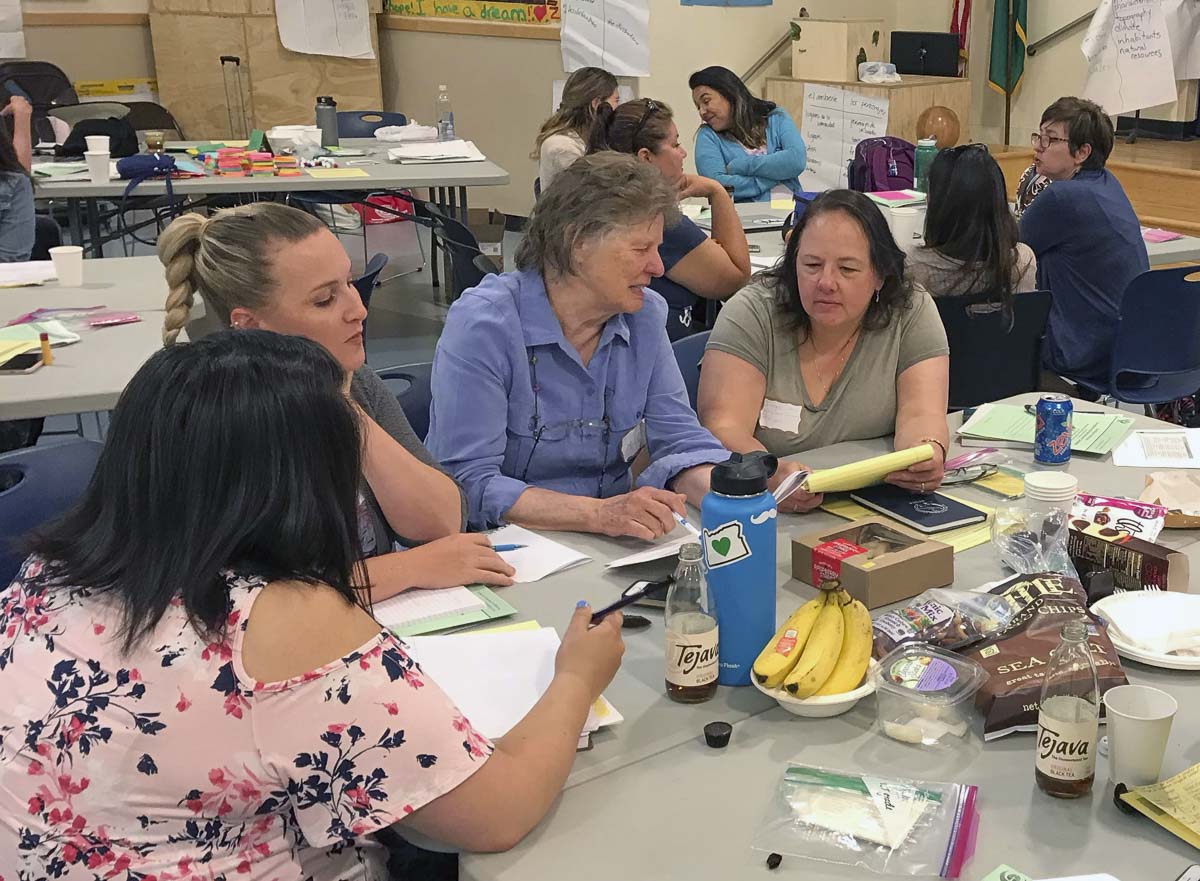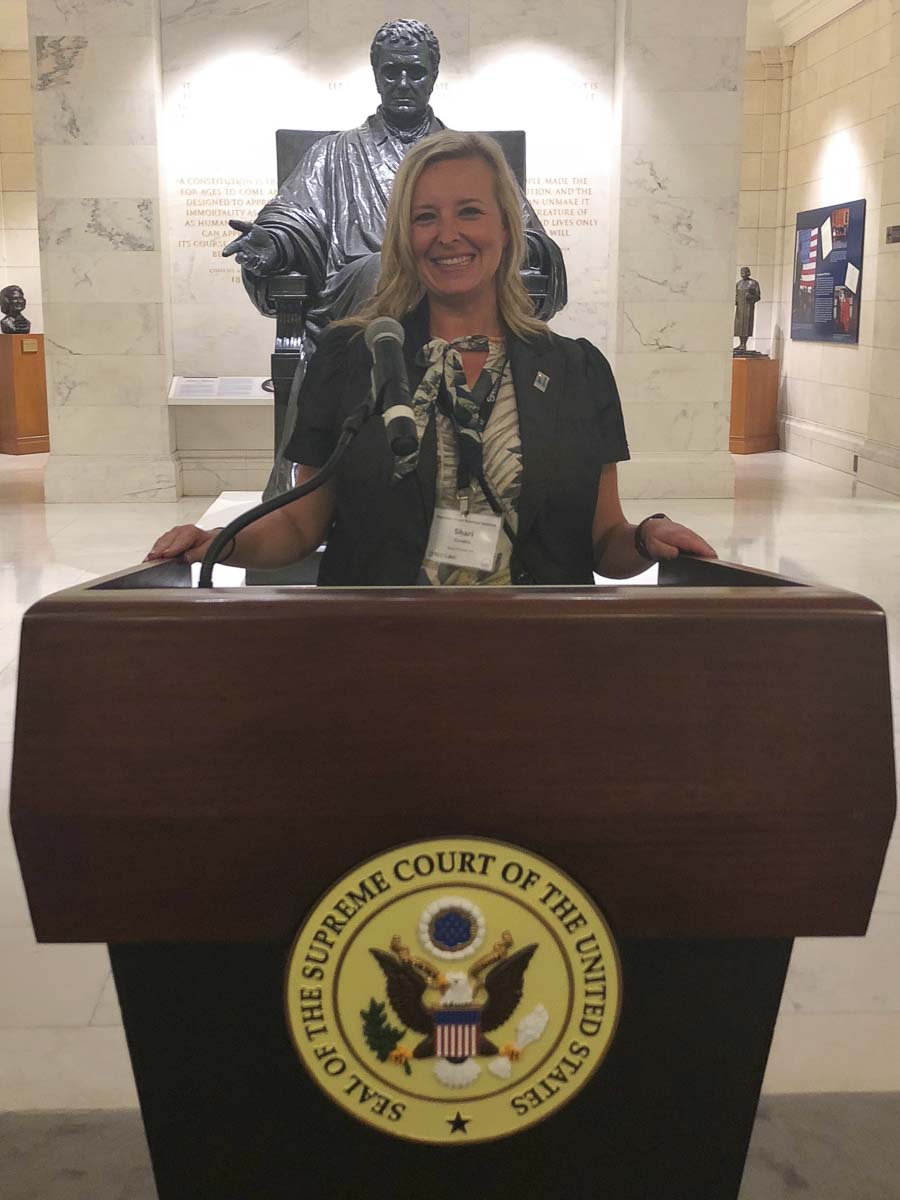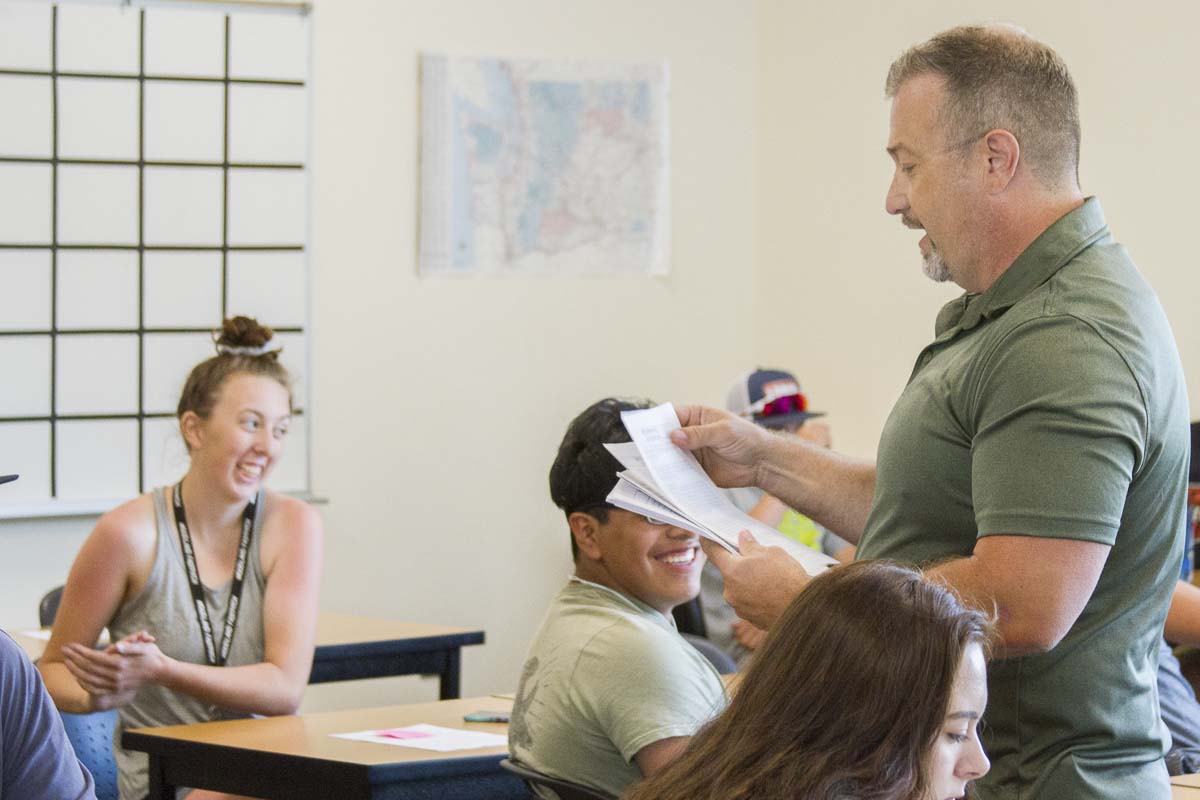Teachers and staff also help out in communities and offer students the chance to make up class credits
WOODLAND — While students enjoy their summer vacations, many school teachers and staff spend their summers developing their teaching skills through professional development opportunities, helping out in their communities, offering students opportunities to make up class credits and preparing for the school year.
- Team members from Woodland Primary School attended a special biliteracy institute to prepare for the launch of the school’s Dual Language program this fall.
- Shari Conditt, a teacher at Woodland High School, worked with the Supreme Court in Washington D.C. after being accepted to a special institute for high school civics teachers.
- Josh Furlong, a paraeducator at Woodland Intermediate School, volunteered as an intern to offer mental health services to people in need in Longview.
- Keith Clevenger, a math and science teacher at Woodland High School, spent his fourth consecutive summer teaching summer school in order to give students the opportunity to make up failing grades from the past year.
Woodland Primary School’s Building Dual Language team attended an institute to help prepare for the program’s introduction
Ingrid Colvard, Woodland Primary School’s principal; Pat Jones, the school’s instructional coach; kindergarten teachers Jill Thoeny and Anahisse Hodge; and first grade teachers Maria Rodriguez and Lyndal Mezes attended the Teaching for Biliteracy Institute for three days to prepare for the school’s dual language program introduction this fall.

The entire team greatly enjoyed the program and learned a lot to get ready for the new school year.
“While the kindergarten teachers will be the only dual language teachers for the 2018-19 school year, the entire team is engaged in planning the instruction,” explained Colvard. “The training program was incredibly comprehensive, offering specific strategies for developing bilingualism and biliteracy in students.”
The program included lessons on how to plan instruction as well as how to design a general classroom setting for the most effective student learning. “We all agreed this experience was absolutely invaluable,” said Colvard. “It was truly one of the best professional development opportunities we have ever engaged in.”
Shari Conditt worked with Supreme Court Justices during the Supreme Court Institute in Washington D.C.
Shari Conditt, a Social Studies and Government teacher for Woodland High School, worked with the United States Supreme Court in Washington, D.C. after being accepted into the Supreme Court Institute, an organization that seeks to enrich civics teachers’ knowledge of government operations with intensive first-hand experience at the Supreme Court over a six-day seminar. The incredibly competitive program only accepts 60 teachers each year.

In order to be accepted, Conditt submitted a detailed application to the program and still doesn’t quite know what made her stand out. “I think I’m just lucky,” she explained. “I do believe that my passion for teaching civics and civic engagement came through in my application – I love my work and feel a large sense of responsibility to my students, their families and our community to ensure our youth are ready and prepared to engage fully as citizens in our democratic society.”
The Institute offered opportunities for Conditt and her colleagues to develop deeper knowledge of the court’s operation, how cases are processed and the role of major players including meeting justices, advocates (court attorneys) from both sides of different past cases as well as Nina Totenberg, for Political Correspondent for National Public Radio (NPR). “Meeting Ms. Totenberg was the highlight of the trip; it as if George Clooney had just walked into the room” said Conditt. “As the correspondent covering the Supreme Court for NPR since the 1970s, she has to select her language carefully when she reports to eliminate legal terms and avoid the implication of any bias.”
Conditt also highlighted meeting with Justice Samuel Alito who met with the attendees for more than an hour to discuss cases. “He explained how he’s frustrated with people making assertions – the assumption that their view is correct – without having debate with their fellow citizens,” said Conditt. “I teach my government students all the time the importance of arguing and debating our opinions, not simply providing assertions something is right or wrong.”
Over the course of the institute, attendees regularly worked directly in the Supreme Court building, performing moot court cases and speaking with lawyers who argued the actual cases. “When presenting your argument to the justices, you only receive a courtesy 30-second time period before judges can, and do, regularly interrupt you,” Conditt learned. “Your hope is to make two strong points and that’s it before you need to be prepared to answer questions.”
Conditt greatly enjoyed her entire experience. “The program was started by Chief Justice John Roberts when he was still an attorney as he thought a program like this would be incredibly valuable,” she said. “Being able to have this sort of experience makes me more confident when I guide my students through these activities – seeing the process first-hand makes me a more authentic teacher.”
Conditt seeks out professional development opportunities to take part in each year. “Learning experiences like these directly impact my students in the form of professional learning on my part,” explained Conditt. “I’m already looking for what I’m going to do next summer.”
Josh Furlong provided mental health counseling to people in need during an internship at Core Health
Josh Furlong, a paraeducator at Woodland Intermediate School, spent his working with Core Health providing mental health services in Longview. His internship is part of the requirements to earn a master’s degree in social work from Arizona State University.
“This summer has been the most exciting time for my program so far as I’ve been performing mental health counseling as an intern at Core Health by providing services to children, families and homeless individuals,” he said. “My internship has provided me with great field experience as I continue to further my social work skills.”
Furlong connected with Core Health after contacting the Community House in Longview. “My mission is to apply evidence-based therapy to help clients reach their greatest outcome in the short amount of time I get to work with them,” he explained. “Since I knew the Community House of Longview has a significant need for professionals, I reached out to them and they informed me of Core Health where I’ve been performing my internship.”
Working with homeless children and their families provided valuable insights for Furlong. “Understanding the various traumatic circumstances some children in our communities have to endure on a daily basis has enhanced my compassion for children,” he said. “The experience has given me a greater ability to empathize with students when they show symptoms of shutting down, maladaptive behaviors needing changing or transitions in their schedules.”
Furlong decided to work with special needs children due to his love for kids. “I was a teacher aide for my school’s special education teacher when I attended high school,” he explained. “I felt my personality mixes well with the students and we have a lot of fun together – I don’t feel I chose my profession as much as my vocation chose me.”
Keith Clevenger teaches summer school every year
Students who need to replace failing grades can perform credit recovery during the summer where attending class for three weeks from 9 a.m. to 2 p.m. each day is equivalent to an entire credit. Keith Clevenger, a math and science teacher at Woodland High School, spends his summers helping students recover credits and learn skills and has taught each summer for the last four years as well as seven or eight summers of the past ten years.

Clevenger sees students’ dedication to their coursework increase during summer school. “Students are actually more attentive during the summer because their success lies entirely on their work and dedication,” he explained. “We find many students perform better when we make them entirely accountable for finishing their work in the focused approach summer school offers.”
The summer school program uses the APEX teaching curriculum, the same software used by students attending TEAM High School. “I modify the math curriculum to align with the high school’s own curriculum, selecting the specific sections we need to focus on and ensuring students work on the correct material in the correct order.” In just one of the two sessions offered this summer, 62 students recovered class credits. Out of the two three-week sessions, students recovered more than 100 credits.
In addition to paying more attention, Clevenger finds summer school to be more relaxed than the sometimes hectic grind of the regular school year. “I’m definitely more laid back during the summer because the students take summer school very seriously – they want to make sure they get the material done,” he explained. “After the first few days, the students typically feel more laid back than they do during the regular school year.”
Summer school offers Clevenger the opportunity to work more closely with his students. “I enjoy helping out the kids during the summer school sessions,” he said. “I really enjoy working with students and I love teaching – the only trick is my ‘honey-do’ list seems to get longer in the summer.”




